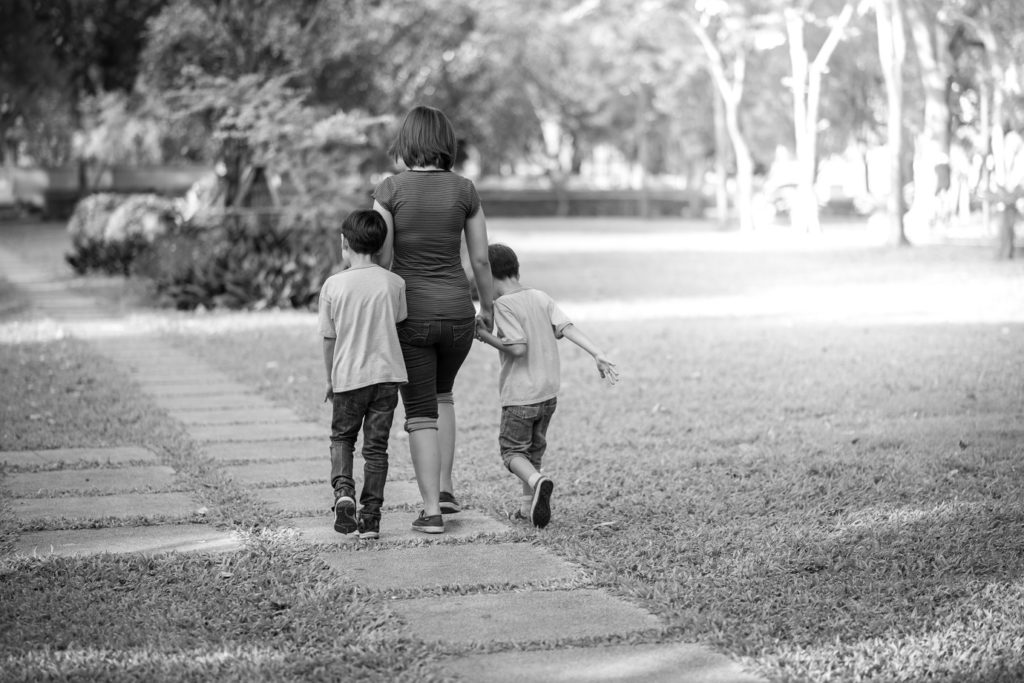Forty-five years ago, an estimated 90 percent of Icelandic women took a “day off” to protest their low pay and marginalisation. Schools, factories and shops shut. Fathers were forced to care for their own children while women marched in the street and sang. Equal pay legislation was passed soon after — and in another five years, Iceland became the first European country to elect a woman as head of state.
Coincidence? I think not.
The women of Iceland were inspired by women in the US, who five years earlier invited women to strike on the 50th anniversary of women’s enfranchisement. Their slogan: “don’t iron while the strike is hot”.
Downing tools is a wonderfully inventive — and effective — way to make a point.
So, as we mark the 50th anniversary of the first women’s strikes, may I suggest the parents of Australia, indeed parents around the world, take a page out of these women’s book and organise a “Parent’s Strike”.
Conditions are ripe for more direct action, and, collectively, parents could have quite an impact. Consider this: adults in families with dependent children are roughly 1/5 of the working age population in Australia. Put crudely, that’s too many people for either employers who are hiring or politicians seeking re-election to ignore.
Even before the pandemic, parents were buckling under the strain of the so-called “juggle”. In 2019, the social enterprise Parents at Work released its National Working Families Report, which indicated that 2/3 of working parents were struggling to care for their physical and mental health due to work and caring. One in four were thinking about quitting or “actively intending to leave” their job.
Add to this the perfect storm for parents that was 2020. It’s no secret that parents, especially mothers, have been hit hard by the pandemic.
The combination of additional parental responsibilities with school and childcare closures, combined with the added pressure of trying to keep a job in the midst of extremely challenging circumstances, has pushed many parents to the brink. Experts have warned of a shadow pandemic of “parental burnout”.
The pandemic has laid bare the precarious foundations upon which too many families, particularly working mothers’, have built their lives. And it has highlighted the need for public policies and workplace practices that support families.
The national lobbying network The Parenthood made precisely that point last week at the launch of a new report, Making Australia the Best Place in the World to Be a Parent. The report, according to Georgie Dent, the Executive Director, is aimed at ensuring Australia has “the conditions that allow parents and children in Australia to thrive, rather than simply survive”.
So why a strike, you ask? Aren’t we having this debate? Isn’t change on the horizon?
Because I don’t think the current government is listening.
I started to think along these lines when I heard Treasurer Josh Frydenberg speak at the The National Press Club last year, where he, essentially, encouraged women to have “one for country” in order to help right Australia’s struggling pandemic economy.
Frydenberg demonstrated a woeful ignorance of, as I wrote at the time, “where babies really come from”. Australia’s birth rate is falling and there’s a pretty good reason for that. You have to build a strong, caring economy that works for women — who, you know tend to give birth to the babies — if you want to inspire that kind of confidence.
But the potential militant parent in me really got fired up last Thursday after watching the Treasurer respond to Independent MP Zali Steggall’s query in Question Time about The Parenthood Report. She asked if his Government would commit to funding one year of paid parental leave to be shared between parents. Modelling for The Parenthood suggests that could be worth $4.6 billion in GDP. Sounds pretty good, right?
Apparently not.
What followed was a load of rubbish, in which Frydenberg attempted to gaslight the mothers and parents of Australia with waffle about how the current policy – cue some dazzling, but meaningless, numbers about how much it costs – was contributing to “record numbers of women in the workforce” and a “record low gender pay gap”.
@zalisteggall face at QT yesterday when @JoshFrydenberg refused to commit to reforming and increasing PPL in Australia — whilst he gaslit Australia’s women and parents with a load of nonsense about how the current scheme was resulting in “record numbers of women in work”. pic.twitter.com/AVroKIYUEO
— Kristine Ziwica (@KZiwica) February 19, 2021
Well, if the Treasurer wants to talk about “women’s workforce participation rates” and the “gender pay gap”, let’s do this. Here’s some important context around those figures. Women in Australia have some of the highest part time work rates in the world, and Australia’s national gender pay gap has hovered between 13.9% and 19% for the past two decades.
What will a “Parent’s Strike” look like. I’m not sure yet. I’m open to ideas. But I’m sure going to have a lot of fun thinking about it. Maybe we can all leave our babies on the Treasurer’s doorstep before heading out to work. I’ve heard he’s great with children.
Kristine Ziwica is a regular contributor. She tweets @KZiwica


